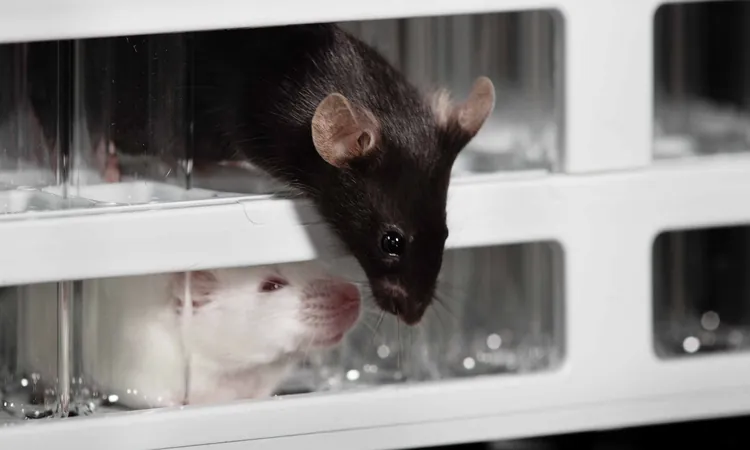
Groundbreaking Discovery: Scientists Create Healthy Mouse from Two Male Parents!
2025-06-17
Author: Jia
In a remarkable breakthrough, scientists have successfully raised a mouse born from two male parents into a healthy adulthood, defying long-standing genetic limitations. This pioneering research is shedding light on how genetic barriers can be overcome to facilitate such unprecedented reproductive feats.
The Imprint of Genetics
At the core of this scientific marvel lies the concept of biological imprinting—a phenomenon where genes express differently depending on their parental origin. For years, researchers have grappled with the question: could paternal-only DNA sustain a mammal through life?
Unlocking the Secrets of Paternal DNA
By carefully manipulating the imprinting genes associated with fetal growth, the research team opened new pathways for the development of embryos using only paternal cells. Wei Li from the Chinese Academy of Sciences stated, “This work will help to address several challenges in stem cell and regenerative medicine.”
How They Did It
Typically, an embryo requires a balanced input of paternal and maternal DNA. In instances where only paternal DNA is present, certain genes responsible for growth can become overactive. By selectively editing these genes, the team enabled the survival of these unique embryos.
Implications for Medicine and Beyond
The implications extend far beyond curious mice! Errors in gene imprinting are linked to various human disorders. The researchers see potential in applying their methods to correct imprinting errors, such as those found in Birk-Barel syndrome, potentially revolutionizing treatment for these diseases.
A New Era for Cloning?
The modified imprinting genes not only supported the survival of these mice but also made embryonic stem cells more efficient, doubling the likelihood of producing healthy pups. This could transform cloning practices, which currently struggle with high mortality rates due to faulty imprinting.
Ethical Aspects of Genetic Engineering
This breakthrough raises important ethical questions, especially about the potential applications for human reproduction. While heritable genome editing is currently prohibited in humans due to safety concerns, this research lays the groundwork for future discussions.
Looking Ahead
There’s much left to explore, including how changes in imprinting might impact longevity, fertility, and overall health. Researchers remain cautious but optimistic that these insights could enhance cloning processes and improve stem cell applications.
With scientists excited about the future, this study may just be the beginning of a new frontier in genetic engineering, paving the way for groundbreaking advancements in healthcare and beyond.

 Brasil (PT)
Brasil (PT)
 Canada (EN)
Canada (EN)
 Chile (ES)
Chile (ES)
 Česko (CS)
Česko (CS)
 대한민국 (KO)
대한민국 (KO)
 España (ES)
España (ES)
 France (FR)
France (FR)
 Hong Kong (EN)
Hong Kong (EN)
 Italia (IT)
Italia (IT)
 日本 (JA)
日本 (JA)
 Magyarország (HU)
Magyarország (HU)
 Norge (NO)
Norge (NO)
 Polska (PL)
Polska (PL)
 Schweiz (DE)
Schweiz (DE)
 Singapore (EN)
Singapore (EN)
 Sverige (SV)
Sverige (SV)
 Suomi (FI)
Suomi (FI)
 Türkiye (TR)
Türkiye (TR)
 الإمارات العربية المتحدة (AR)
الإمارات العربية المتحدة (AR)